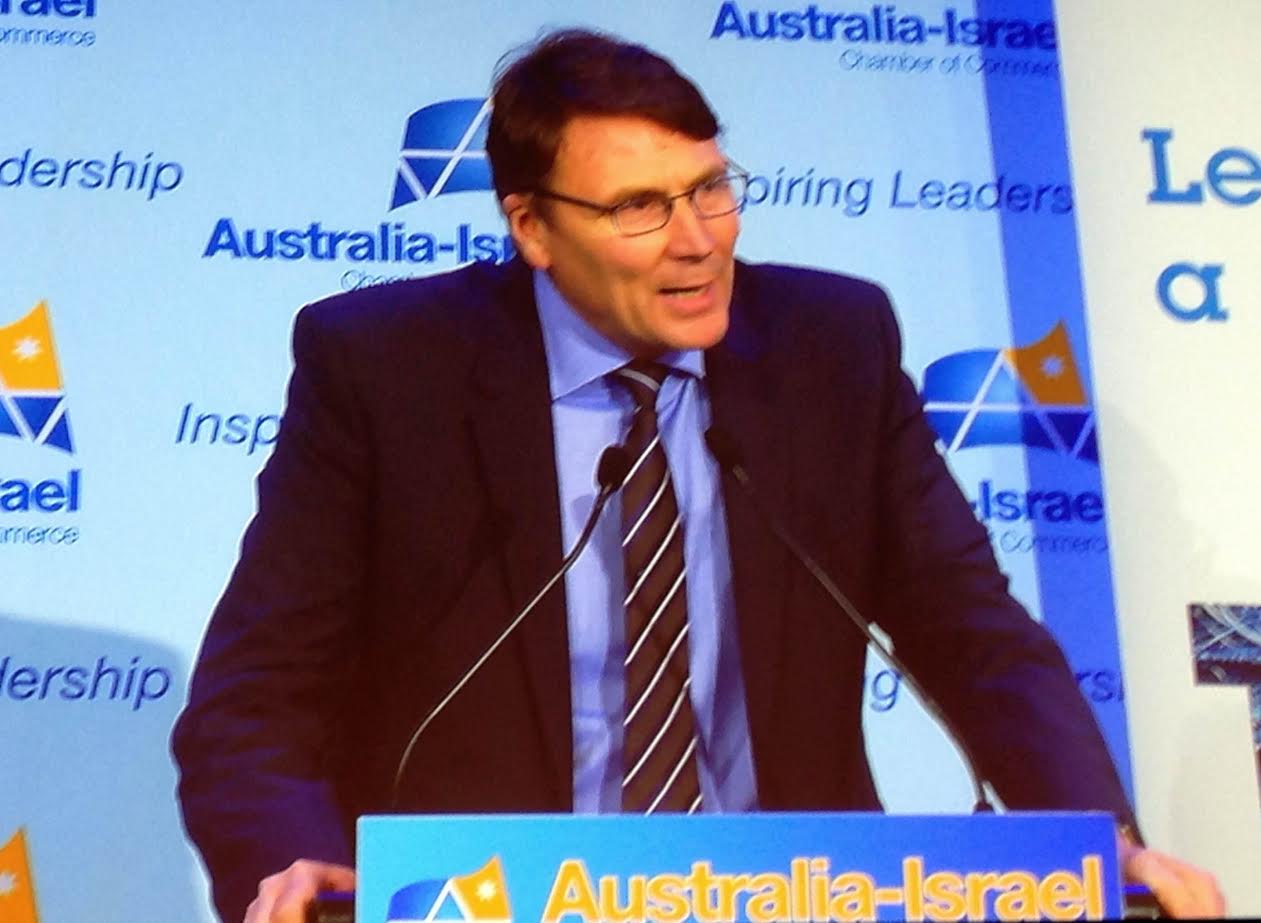Telstra looks to digitisation to shake off 'incumbent telco' label

Telstra CEO David Thodey has said Telstra will look to shake off its label as the national incumbent telecommunications company, and instead become a "great Australian technology company" that begins with a major digital overhaul.
Speaking at an Australia-Israel Chamber of Commerce event in Sydney today, Thodey said that as the National Broadband Network (NBN) continues to roll out, Telstra will look to shift from being the fixed line telecommunications company it has historically been known as, and become a global technology company.
"I strongly believe, and my vision for Telstra is that we become a great global technology company. We've too long been bound by being the incumbent telco, and that is not the future for Telstra," he said.
"We want the NBN to be really successful so we can get on with our lives. Our future has got to be in being a great Australian technology company and that's the vision we have for it."
Thodey today announced that Telstra would be embarking on its new Digital First strategy that would overhaul its internal systems and its method of dealing with customers. The process will take three years, and Thodey said it will result in customers getting better control and oversight over their accounts and dealings with Telstra.
Telstra will be using data analytics "to create more intimacy" with the customers, Thodey said. The aim would be that no matter where a customer contacts Telstra, the company will know what the customer has done, he said.
Thodey also said customers will soon be able to track field technicians on their way to an appointment.
"It's about being more transparent. I don't know if you like to know where your field technician is, and how long he is going to take to get to your home, but we're actually going to enable you to track your field technician en route to your home and say 'He should be here in five minutes' unless he stops for a surf in Dee Why or whatever it is," he said.
All of Telstra's products would be digitally-enabled, he said, and Telstra would soon move to real-time billing.
"That's going to be an enormous change for us," he said.
"As you know, when you use your mobile phone, it's usually a delay of about 24 hours before we can do measuring on your call. This is big."
He said Telstra would be encouraging other companies to embark on a similar digital transformation.
"If Telstra's got to go through this transformation, every company in Australia has got to go through it," he said.
"Enabling the digitisation of every business process is critically important and will help drive costs down, improve customer service, and will also drive innovation and simplification."
Telstra would also continue its investment in start-ups, he said.
"What we're trying to do is try to help local companies be more successful. Some of them will be integrated into Telstra, some we're going to leave to operate on their own," he said.
"If we do this, there is a bright future for this country, and our sector."
Thodey said that he believed there was sufficient access to capital for start-ups, and that the taxation system for start-ups was worth addressing, but said there were bigger issues to deal with.
"I think they are important to tidy up, but I don't think that's the big issue. I think the big issue is: do we have the will, and do we want to do it?"
Over-the-top players not a threat
While Thodey said he didn't understand how Facebook could justify spending US$19 billion buying WhatsApp, he said he was a fan of the app, but he said he was a fan of the service. Unlike Telstra's rival SingTel, Thodey said he didn't see a problem with the app.
"Any application that creates value for consumers, or drives usage on our networks is great. Many telcos would say they wouldn't like them because of the substitution effect, and it's taking away SMS revenues etc. I think that's really backward-looking. That's the old Telstra protectionism; not creating a new future," he said.
"What telcos have got to do is we've got to manage our capital investment and pricing strategies to make sure we create value for shareholders. But there's lots of different ways you can do that."
He said that Telstra was creating value by attracting customers to its network by investing over AU$1 billion in the mobile network.
"We have a very strong strategy. We're not about giving value away, we're about creating value for customers, and that's what we want to do. If people's consumption habits change, then we better be ahead of that."
